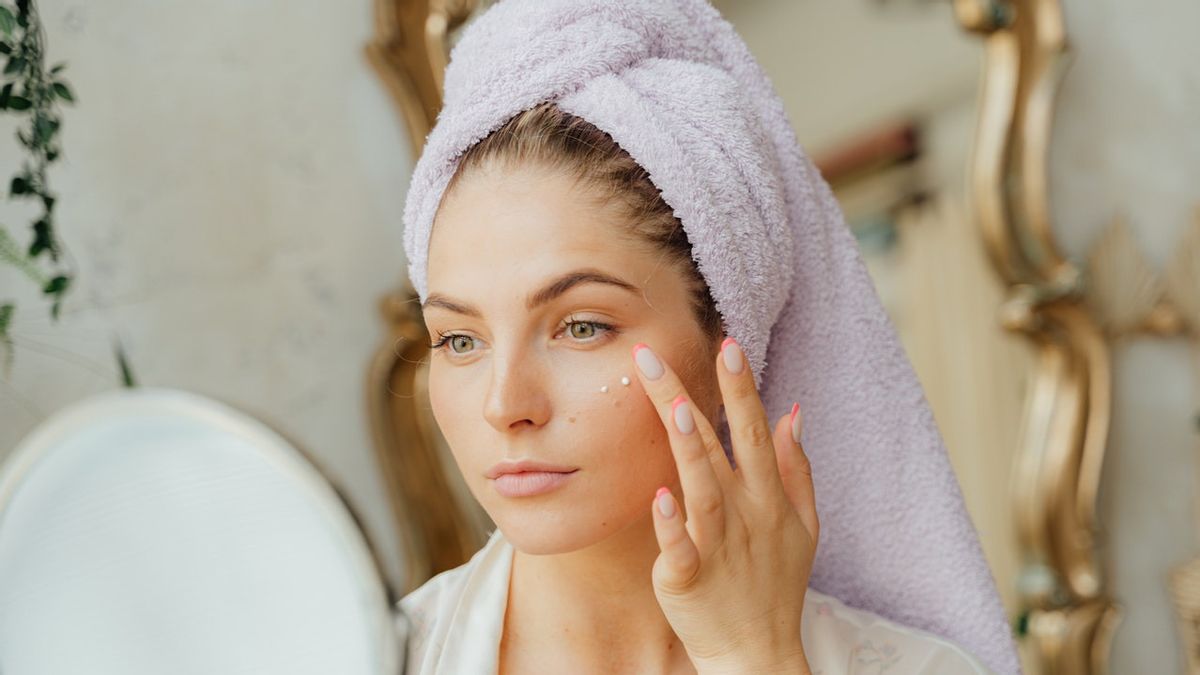JAKARTA – Facial treatments using a variety of products need to consider the composition. The reason is, not every composition in one skincare can be combined with other skincare products and used sequentially. Skin irritation is the background effect of a series of products in the skin care routine.
According to doctor Shari Marchbein, a board-certified dermatologist in New York City, as reported by InStyle, Monday, February 7, mixing ingredients without proper knowledge of how these ingredients work affects their effectiveness and timing. Not to mention the unwanted effects, namely to irritate the skin.
To avoid exfoliation, irritation, dry skin, here are expert recommendations regarding ingredients that may and may not be mixed in one order of skincare use.
1. RetinolRetinol is also known for its vitamin A, which helps promote skin cell turnover, which can help improve the appearance of fine lines, wrinkles, uneven skin texture, dark spots, and blemishes. Certified dermatologist and CEO of Curology, David Lortscher says that retinol is indeed an effective anti-aging ingredient but can dry out the skin.
Retinol should not be mixed with vitamin C, benzoyl peroxide, and AHA/BHA acids. AHA and BHA acids are exfoliating, and if used after or before products containing retinol, they can dry out the skin and cause further irritation.

Vitamin C used in conjunction with other antioxidants such as vitamin E, can increase yields and efficiency. The same goes for wearing vitamin C under sunscreen. Well, what should not be done in a skin care routine, don't mix vitamin C with retinol. Retinol is recommended to be used at night, while vitamin C can be used before sunscreen in the morning to protect skin damage caused by UV exposure.
3. AHA/BHA acidsAHA/BHA acids include salicylic, glycolic, and lactic acids, their function is to improve skin texture, color, treat acne under certain conditions, and are exfoliating. When using products with AHA or BHA acids it is advisable to continue with hydrating products.
This means wearing a moisturizer that contains ceramide, petrolatum, hyaluronic acid, and glycerin to hydrate and soothe the skin. AHA and BHA acids should not be mixed with retinol because they can cause excessive skin sensitivity, irritation, and redness, explains Marchbein.
4. Benzoyl peroxideFor acne-prone skin, benzoyl peroxide is an alternative ingredient for treatment products. Acne treatments generally can cause dryness and irritation of the skin, explains Marchbein, choose moisturizers and cleansers that are gentle and hydrating.
Benzoyl peroxide may be followed by a treatment sequence containing an SPF, a gentle moisturizer, and a topical antibiotic. What should not be mixed with benzoyl peroxide is retinol.
5. NiacinamideNiacinamide is known as vitamin B3, this antioxidant is an anti-inflammatory that can brighten the skin and even out discoloration. Although niacinamide is an ingredient that is rarely irritating, it is not recommended to mix this gentle substance with vitamin C.
If niacinamide is mixed with vitamin C, its strength will be significantly reduced. Unless you give a gap of at least 10 minutes between each serum.
In addition to the 5 ingredients above, if you use sunscreen or SPF, it is not recommended to mix it with makeup or moisturizer.
The English, Chinese, Japanese, Arabic, and French versions are automatically generated by the AI. So there may still be inaccuracies in translating, please always see Indonesian as our main language. (system supported by DigitalSiber.id)












